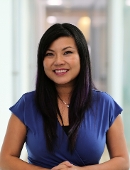Multi-Disciplinary Training Area
Research
Education
PhD, University of California, San Diego
Honors & Awards
2023
Friedman Brain Institute Scholar Award
2022
American College of Neuropsychopharmacology Member
2021
Irma T. Hirschl/Monique Weill-Caulier Research Award
2020
Mount Sinai Distinguished Scholar Award
Icahn School of Medicine at Mount Sinai
2020
Optogenetics GRC, Vice Chair, 2020 and Chair, 2022
2019
NIMH Research Grant (R01)
NIMH
2019
NIH Director’s New Innovator Award (DP2)
2019
McKnight Memory and Cognitive Disorder Award
2019
NARSAD Young Investigator Award
2018
Brain Research Foundation Award
2018
Klingenstein-Simons Fellowship Award
2018
Friedman Brain Scholar Award
2018
Outstanding Teaching Award
Icahn School of Medicince at Mount Sinai
2018
Botanical Center Pilot Award
2017
Allen Institute Next Generation Leader
2016
One Mind Otsuka Rising Star Award
Publications
Publications
